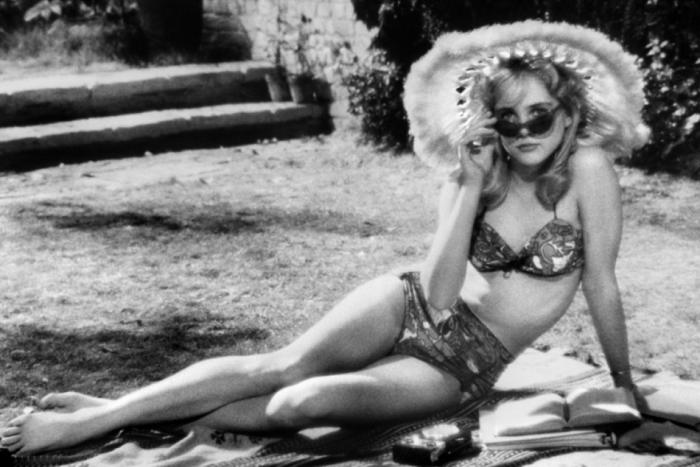Early on in Mike Tyson: Undisputed Truth, the boxer pointedly reminds us exactly what he is: “I’m that guy who used to knock motherfuckers out in 30 seconds,” he tells the crowd. The crowd, dutifully, erupts in raucous cheers.
It’s not like anyone coming to the 90-minute HBO movie based on a Broadway show doesn’t know who Mike Tyson is, but the fact that he needs to remind us at the outset feels pretty indicative of the strange path he’s found himself on since those more consistently violent days. Despite putting on a performance about his own life and times, those of a notoriously unhinged boxer, the Tyson we see on stage is an altogether different beast. After that knockout comment, he calls himself “domesticated now”; a better word might be stage-managed, in ways that resonate far beyond his actual stripped-down show.
Another of Tyson’s other early comments is about James Toback’s soul-searching 2008 documentary, Tyson: don’t worry, he says, this night isn’t going to be all sad like that film was. Instead, we get Tyson as a slightly soft-spoken, often giggly entertainer, Tyson as paunchy Jake LaMotta wandering through the restaurant telling stories and checking on everyone’s steak. If Toback’s Tyson was about how personal pain can spiral into a double helix of creative and destructive tendencies, Undisputed Truth is the dinner theatre version of the same—glossier, less troubling, and starring that familiar face you haven’t seen around as much lately.
If a former athlete wants to remain in the public eye, there aren’t many options besides low-grade celebrity; at one point, Tyson throws in a pitch for Evander Holyfield’s barbecue sauce, which no doubt works great on a George Foreman grill. But more than most, Tyson seems to be using it as a sort of welder’s glass for the public—something that lets us safely and pleasantly take in his public flame-outs.
Undisputed is full of the sort of faux-authenticity we’ve come to love from our troubled celebrities, striking glancing blows at the hard topics while dropping just enough bits of humanity to construct a reasonable façade (he even makes a topical joke about George Zimmerman! Just like we might!). For instance, Tyson spends considerably more time deconstructing his street fight with boxing also-ran Mitch Green (an incident no longer even noteworthy enough to make his Wikipedia page) than his rape conviction. He brushes the latter off with some minor-key contrition, a joke about a black man getting a reduced sentence for anything, and a list of all the celebrities that came to see him in jail—because what gives your narrative more credence than a celebrity endorsement?
There was actually a kind of warped reflection of Tyson’s whole celebrity shell game in another TV special last week, David Blaine’s Real or Magic, in which the street magician performed his bizarro magic to a rotating cast of notables. Though Blaine was putting them to use by apparently shoving nails through his hands, his goal was the same as Tyson’s: to make us think we’re seeing something real. In Blaine’s case, his tricks—illusions, Michael—were given a double dose of authenticity by his celebrity guests. Not only does he have actual witnesses, but the way in which their reactions cause the veil of celebrity to fall primes us for another kind of truth: that their masks come off makes it even easier for Blaine to act as if he isn’t wearing one, either (or at least using whatever voodoo Blaine does to pull that stuff off).
Blaine, at least, is only trying to amuse. Tyson—aided by Spike Lee, one of those celebrities who visited Tyson in jail—is trying to both amuse and obfuscate. He’s telling us “undisputed truth,” but it’s as real as the living room he welcomes us into at the show’s outset, a stage prop corner that shields us from the darkness behind it. By giving us a close-up of his face tattoo, he can get us to ignore the fact he’s still wearing a mask.
This isn’t entirely to sell Tyson’s journey short: he is obviously a man with some serious demons, ones that he does seem to have under control for the time being. The fact that he can joke about something like biting off Holyfield’s ear is honestly unfathomable from the vantage of the late ‘90s, when he would have been a walking punchline but for the dark undercurrents of his most infamous acts (though I guess he still kind of was anyway).
But the time for actually facing those demons, let alone some of the things they actually drove him to do, is obviously in the past for Tyson. Now they’re just a part of his story, and even their invocation comes in the pat lines of autobiography, the outlines of a myth that’s becoming more and more self-made by the minute. The man that used to knock out motherfuckers in 30 seconds took his hardest hits from life, you see, but now he’s back up on his feet, and wouldn’t you like to see the Mike Tyson show, starring Mike Tyson as himself?





